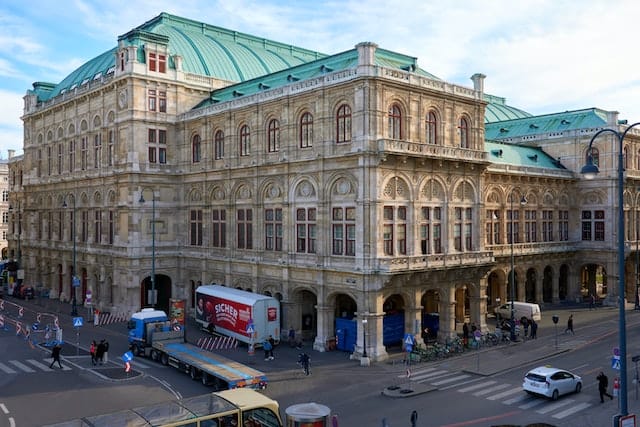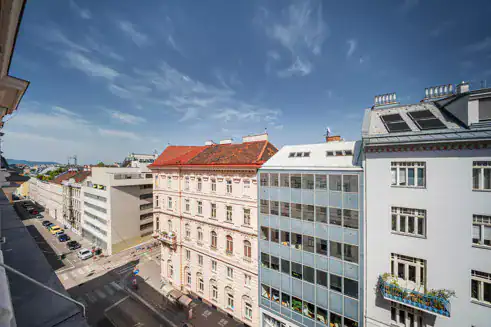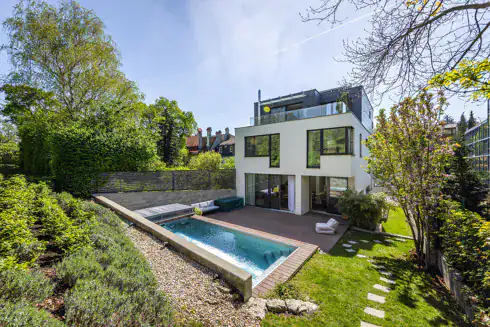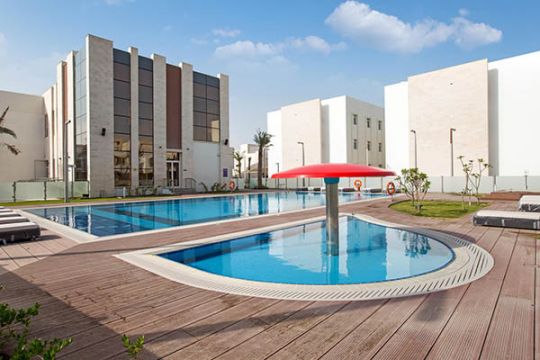Vienna, the capital of Austria, is a dynamic and culturally rich city famous for its imperial history, classical music heritage, and stunning architecture. Situated on the banks of the Danube River, Vienna has long been a hub of art, philosophy, and politics. The city features grand palaces like the Hofburg and Schönbrunn, world-renowned museums, and concert halls, including the Vienna State Opera and the Musikverein. Additionally, Vienna is famous for its coffeehouse culture and culinary delights, such as the iconic Wiener Schnitzel and Sachertorte.
As one of the most livable cities in the world, Vienna offers excellent public transport, green spaces, and a high standard of living. Its strong economy, particularly in sectors like technology, finance, and real estate, makes it a popular destination for tourists and investors. With its rich cultural scene, a blend of modern and historical attractions, and a high quality of life, Vienna remains one of Europe’s most appealing cities.
Can foreigners buy property in Vienna?
Yes, foreigners can buy property in Vienna, but the process and requirements vary depending on the buyer’s nationality, residency status, and the type of property they wish to purchase. Here’s a detailed overview of the regulations and procedures for foreign buyers:
EU/EEA Citizens
Citizens of the European Union (EU) and the European Economic Area (EEA) have the same rights as Austrian citizens when buying property. They can buy real estate, whether it’s for residential, commercial, or investment purposes, without requesting any special permissions.
Non-EU/EEA Citizens
For citizens of countries outside the EU/EEA, there are additional restrictions and bureaucratic steps. Non-EU/EEA citizens can still buy property in Vienna, but they may need to meet specific requirements:
Permission from Local Authorities
- Non-EU/EEA buyers generally need permission from the relevant local government authority in Vienna, often called the Land Transfer Authority (Grundverkehrsbehörde).
- This process includes submitting an application detailing the intended property purchase and proving a justified reason, such as establishing residency or a business.
Establishing a Local Company
- Some non-EU/EEA buyers set up an Austrian limited liability company (GmbH) to bypass certain restrictions. The company then buys the property on behalf of the individual.
- This approach is more commonly used for commercial properties or high-value investments, and due to ongoing corporate requirements, it may incur additional costs and administrative responsibilities.
Residency and Long-Term Investment
- Non-EU/EEA citizens with a valid residency permit or long-term visa in Austria often find it easier to obtain property, as residency can support their case with local authorities.
- Additionally, investment in Austrian property can sometimes facilitate gaining residency, especially for high-net-worth individuals who can prove their investment contributes positively to the national economy.
Types of Property and Usage
The intended use of the property can influence the buying process, especially for foreign investors:
Residential Property
- Foreigners can buy residential property in Vienna, but it must generally be for personal use or rental purposes that comply with Austrian housing regulations.
- Some buildings may have regulations limiting their use for short-term rentals (like Airbnb), especially in residential zones where the city seeks to preserve housing stock for residents.
Commercial Property
- Foreigners can purchase commercial property (e.g., offices, retail spaces) relatively freely if they meet the requirements and obtain local permissions where necessary.
Agricultural Land and Forests
- Agricultural land and forest areas have strict rules, and Austrian citizens face significant restrictions when buying them. Foreigners only get permission to purchase these types of land if they demonstrate that the property will be used for approved purposes under Austrian law.
Financing and Tax Considerations
Mortgage Financing
- Foreigners, including non-EU citizens, can obtain mortgages from Austrian banks to finance their property purchases. However, lenders may impose stricter requirements for foreign buyers, such as larger down payments (often around 40-50% for non-EU/EEA nationals).
- Proof of sufficient income and a good credit history are also required. Foreign buyers may need to submit additional documentation to secure financing.
Taxes and Fees
- Property purchase tax in Austria is 3.5% of the property’s purchase price.
- A registration fee of 1.1% is also charged to record the property in the Austrian land registry.
- Additionally, there are notary and legal fees, typically around 1-3% of the property price, and possibly a realtor’s commission if a real estate agent was involved (around 3-4%).
The Buying Process
The process of buying property in Vienna typically follows these steps:
- Find a Property: Foreigners can work with real estate agents, browse online listings, or work directly with property owners.
- Offer and Due Diligence: Once an offer is accepted, it’s advisable to conduct due diligence to ensure no legal or physical issues with the property.
- Purchase Agreement: A notary or lawyer drafts the purchase agreement. This contract becomes legally binding once both parties sign it.
- Permission from Authorities (if required): Non-EU/EEA citizens will need to apply for permission from local authorities to finalize the purchase.
- Payment and Registration: After receiving authorization, the buyer transfers funds. The property is then registered in the buyer’s name in the Austrian land registry, officially completing the transaction.
- Practical Considerations for Foreign Buyers:
- Language Barrier: Legal documents and contracts are often in German, so that foreign buyers may need translation services or a bilingual lawyer.
- Legal Representation: Hiring an Austrian lawyer experienced in property transactions, especially for navigating local regulations and dealing with the Grundverkehrsbehörde for permission, is recommended.
- Currency Exchange: Non-EU buyers may face exchange rate fluctuations if funds are transferred outside the Eurozone.
Conclusion
While foreign property ownership in Vienna is allowed, non-EU/EEA buyers face more complex bureaucratic hurdles. Many non-EU/EEA nationals successfully purchase property by obtaining the necessary permissions, setting up local companies, or securing residency. Working with local legal and real estate professionals can make the process smoother and guarantee compliance with Austrian laws.
Frequently Asked Questions
Which language do people speak in Vienna?
The official language spoken in Vienna is German, Austria’s national language. The local German dialect spoken in Vienna is called Wienerisch or Viennese German. It has distinct features and expressions, but it is still considered a form of German, so speakers of standard German can easily understand it.
Many Vienna residents speak English, especially in business, tourism, and international settings. Vienna’s diverse immigrant communities also speak other languages, such as Turkish, Serbian, and Croatian. However, German remains the primary language used for communication in everyday life, government, and education.
How is the weather in Vienna?
Vienna has a temperate climate with four different seasons. Summers (June to August) are warm, with temperatures around 20–30°C (68–86°F), while winters (December to February) are cold, averaging 0–5°C (32–41°F), with occasional snowfall. Spring and autumn are mild, with temperatures ranging from 5–15°C (41–59°F). The city encounters moderate rainfall throughout the year, with more frequent showers in spring and autumn.
Is real estate expensive in Vienna?
Yes, real estate in Vienna can be relatively expensive, especially in central areas. The city has seen significant growth in property prices over the past decade, driven by its strong economy, high quality of life, and demand from residents and international buyers.
- City Center: Properties in the central districts (like the 1st district, Innere Stadt) are particularly pricey due to their proximity to historical landmarks, businesses, and cultural attractions.
- Suburban Areas: While prices are lower outside the city center, demand for properties in well-connected districts and popular residential areas can still lead to relatively high prices.
- Rental Market: The rental market is competitive, with rents increasing in recent years, especially for well-located apartments.
However, compared to other major European cities like London, Paris, or Zurich, Vienna’s real estate prices are generally more affordable, making it attractive for both investors and people looking to live there.
Can you get citizenship in Vienna by buying a property?
Buying property in Vienna does not automatically grant you citizenship. Austria does not have a program where property ownership leads to citizenship. However, there are pathways to Austrian citizenship that involve residency, such as living in the country for a specific number of years, typically 10, and serving requirements related to language proficiency, integration, and financial stability.
For high-net-worth individuals, there is a possibility of acquiring citizenship through significant investments, but this usually involves larger contributions to the economy, such as creating jobs or investing in business ventures, rather than simply purchasing property. Additionally, you may be eligible for citizenship by descent if you have Austrian ancestry. Therefore, while buying property can be part of establishing residency, it does not directly result in Austrian citizenship.













